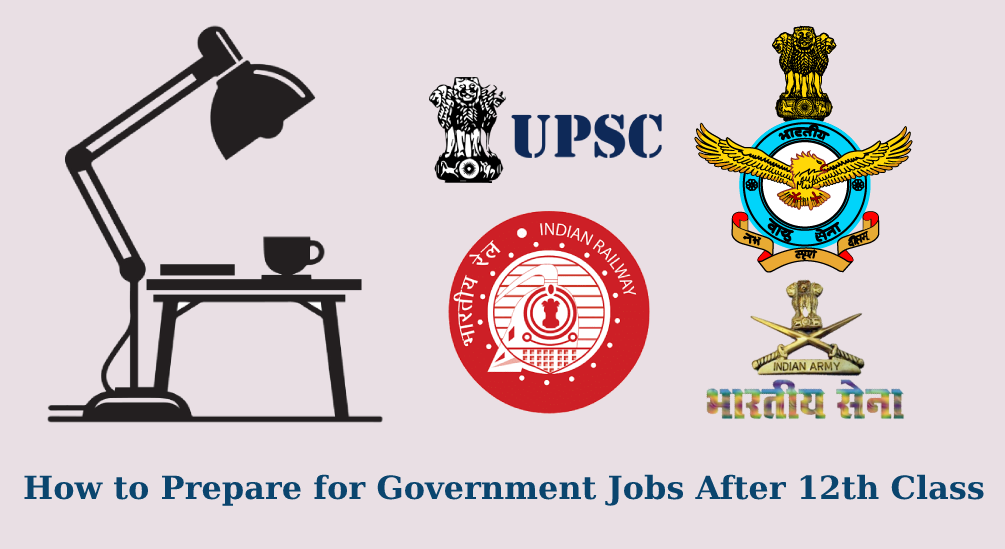Explore the Best Government Jobs in Rural Areas
Governments Jobs in rural areas are crucial in bridging the gap between urban and rural development. These positions serve as a lifeline for many rural communities, offering economic stability, social infrastructure, and administrative support. In countries with significant rural populations, the importance of these jobs extends beyond individual employment; they help drive regional development and social equity.
While urban centers often dominate discussions about career opportunities, rural areas present unique challenges and rewards. Government jobs in these areas are not only a source of livelihood but also a means to ensure that essential services like education, healthcare, and public administration reach the remotest corners of a country, often accompanied by retirement benefits.
Introduction to Government Jobs in Rural Areas
Government jobs in rural areas play a crucial role in bridging the developmental gap between urban and rural regions. These jobs encompass diverse sectors such as healthcare, education, infrastructure, agriculture, and social services, contributing significantly to the growth and well-being of rural communities. They offer not only employment opportunities but also avenues for creating positive change by addressing the unique challenges faced by rural populations.
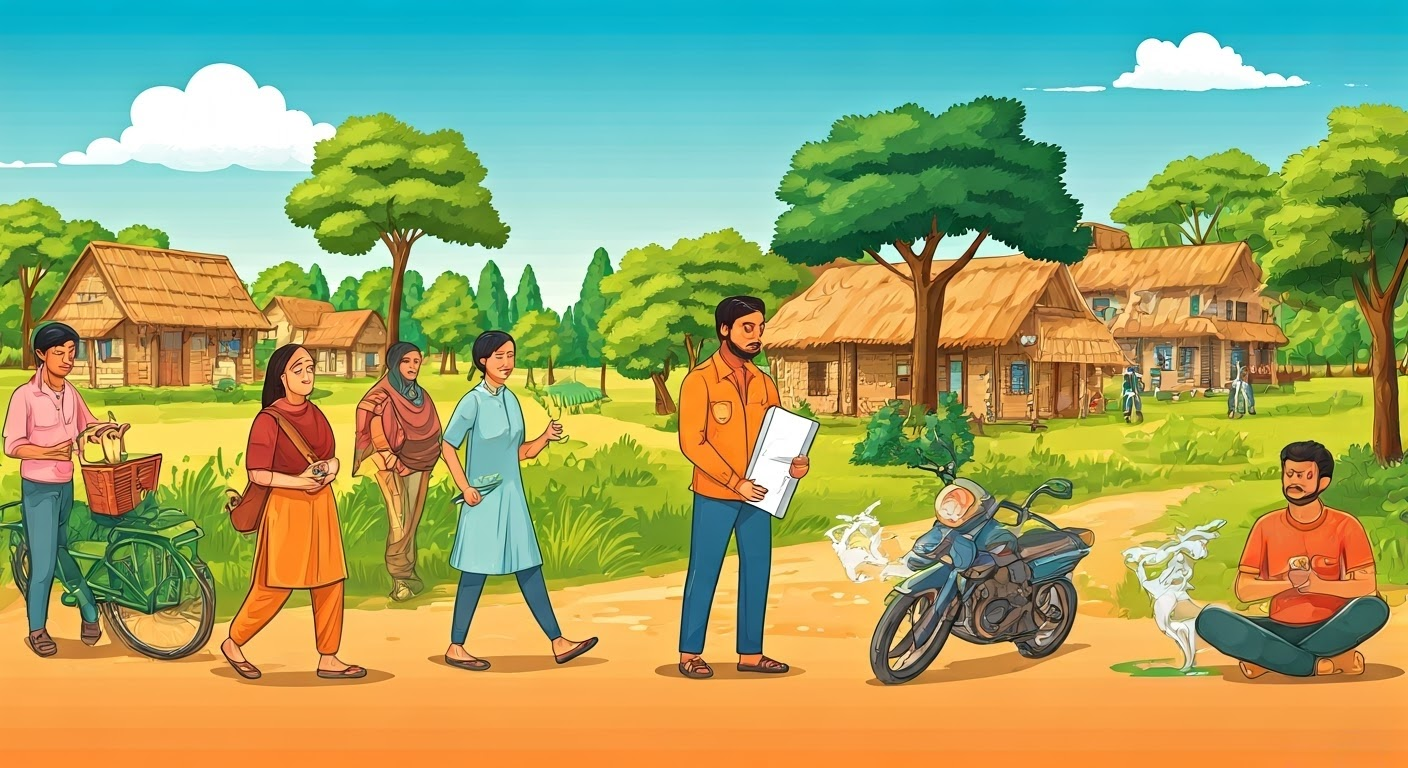
Top Government Jobs Available in Rural Areas
There is multiple Governments Job openings in rural areas. Few of them listing it according to the career options like medical, teaching, agriculture etc.
Healthcare and medical services
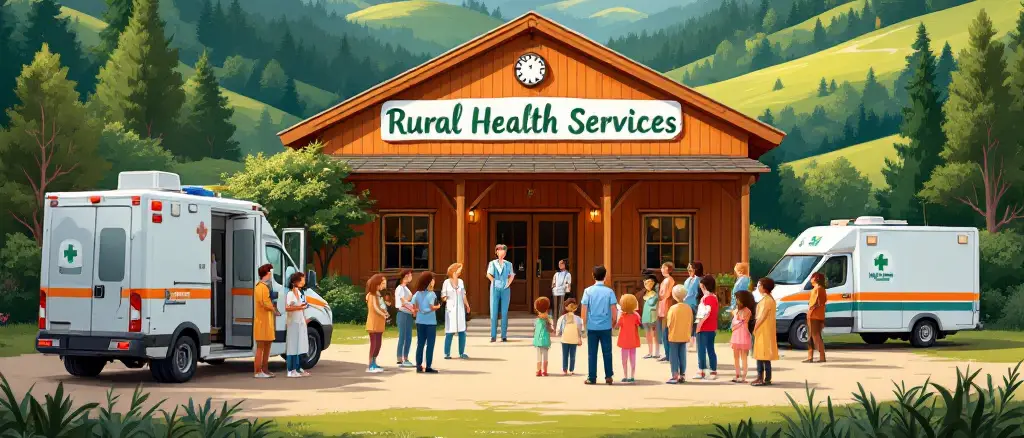
1. Doctors and General Practitioners
Doctors are the cornerstone of rural healthcare systems. They diagnose and treat illnesses, provide preventive care, and handle emergencies in primary health centers (PHCs) or rural hospitals.
Qualifications: Bachelor of Medicine and Bachelor of Surgery (MBBS) degree, with or without postgraduate specialization, depending on the role.
Impact: Doctors in rural areas often serve as the first point of contact for patients, playing a crucial role in managing community health.
2. Nurses and Midwives
Nurses and midwives are essential for maternal and child health, immunization programs, and general patient care. They often work in PHCs, sub-centers, and community health facilities.
Qualifications: General Nursing and Midwifery (GNM) or Bachelor of Science in Nursing (B.Sc. Nursing).
Impact: They ensure safe childbirth, provide neonatal care, and educate families on hygiene and nutrition.
3. Community Health Workers (CHWs)
CHWs act as a bridge between rural communities and healthcare facilities. They conduct health awareness campaigns, provide basic care, and assist in implementing public health initiatives.
Qualifications: Minimum high school education with specialized training in community health programs.
Impact: CHWs play a critical role in early disease detection and health promotion, especially in remote villages.
4. Auxiliary Nurse Midwives (ANMs)
ANMs are frontline workers providing reproductive and child healthcare, vaccinations, and nutritional advice in sub-centers or mobile units.
Qualifications: Diploma in Auxiliary Nurse Midwifery.
Impact: ANMs contribute significantly to reducing maternal and infant mortality rates in rural areas.
5. Pharmacists
Pharmacists in rural areas dispense medications, counsel patients, and manage drug inventories in healthcare facilities.
Qualifications: Diploma or Bachelor’s degree in Pharmacy.
Impact: They ensure the safe and effective use of medications and support the treatment of chronic and acute illnesses.
6. Laboratory Technicians
Laboratory technicians conduct diagnostic tests and provide critical data to aid in disease management and treatment planning.
Qualifications: Diploma or degree in Medical Laboratory Technology (MLT).
Impact: Their work supports accurate diagnosis and timely medical intervention in rural settings.
7. Radiographers
Radiographers operate imaging equipment such as X-ray machines to assist in the diagnosis of injuries and illnesses.
Qualifications: Diploma or degree in Radiography.
Impact: They provide critical diagnostic support in rural hospitals.
8. Public Health Officers
Public health officers manage health programs, monitor disease outbreaks, and implement policies to improve community health.
Qualifications: Master’s degree in Public Health (MPH) or equivalent qualifications.
Impact: They address the broader determinants of health and ensure the effective delivery of healthcare programs.
9. Mental Health Professionals
Psychiatrists, psychologists, and counselors provide mental health services, addressing issues such as depression, anxiety, and substance abuse.
Qualifications: Degrees in psychiatry, psychology, or counseling.
Impact: They help mitigate the mental health crisis in rural populations, often worsened by socio-economic hardships.
10. Ambulance Drivers and Paramedics
These professionals provide emergency medical assistance and transport patients to healthcare facilities.
Qualifications: Certification in paramedical services and training in basic life support (BLS).
Impact: They ensure timely intervention during emergencies, reducing mortality and morbidity rates.
Education and teaching
Government teaching jobs in rural areas encompass various roles teaching positions in government colleges, each tailored to meet specific educational needs. These include positions at different levels of education, from primary schools to higher secondary institutions.

11. Primary School TeachersPrimary school teachers are the backbone of the education system in rural areas. Their responsibilities include teaching basic literacy, numeracy, and foundational subjects such as science, social studies, and languages. Primary teachers also emphasize moral education and life skills, fostering a strong academic base for young learners.
Qualifications: A diploma in elementary education (D.El.Ed) or a Bachelor of Education (B.Ed) degree with a teaching eligibility test qualification (e.g., TET or CTET in India).
Impact: By working with children in their formative years, these teachers lay the groundwork for lifelong learning and development.
12. Secondary School Teachers
Secondary school teachers focus on subject-specific education for students in higher grades. They teach core subjects such as mathematics, science, history, and literature, preparing students for board examinations and higher studies.
Qualifications: A B.Ed degree with a specialization in a specific subject and passing a teaching eligibility test.
Impact: They play a critical role in equipping students with advanced knowledge and skills necessary for professional and academic pursuits.
13. Special Education Teachers
In rural areas, special education teachers address the needs of students with disabilities, including physical, mental, or learning challenges. These educators provide tailored instruction and support, ensuring that every child has an opportunity to succeed.
Qualifications: A diploma or degree in special education and certification in inclusive education.
Impact: By fostering inclusive learning environments, special education teachers help build a more equitable education system.
14. Vocational Trainers
Vocational trainers introduce students to skills-based education in fields such as agriculture, carpentry, tailoring, and computer technology. , which can also support future careers in law enforcement. This practical knowledge is particularly valuable in rural areas, where many students pursue careers in skilled trades.
Qualifications: Certification or diploma in the relevant vocational field and training experience.
Impact: Vocational trainers empower students with employable skills, reducing unemployment and driving local economic development.
15. Headmasters/Principals
Headmasters or principals are responsible for managing rural schools, overseeing teaching staff, and ensuring the effective implementation of government policies and curricula.
Qualifications: Advanced degrees in education or administration and significant teaching experience.
Impact: Strong leadership ensures a well-functioning school environment and high educational standards.
16. Adult Education Coordinators
Adult education coordinators address literacy and education for adults who missed out on formal schooling. These roles often involve running night schools, literacy campaigns, and skill-based workshops for rural adults.
Qualifications: Training in adult education or community outreach programs.
Impact: Adult education programs improve the socio-economic conditions of families by equipping individuals with basic literacy and employability skills.
Agriculture and farming
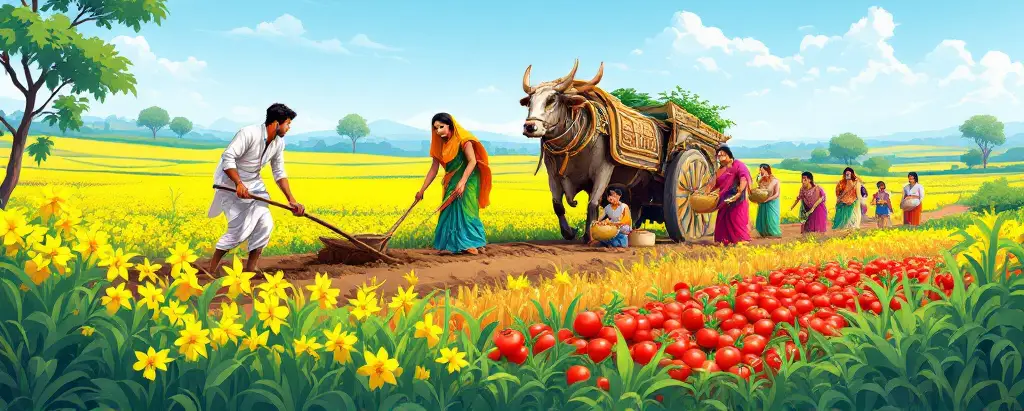
16. Agricultural Extension Officer
Agricultural Extension Officers serve as the bridge between the government and farming communities. They disseminate information on best farming practices, new technologies, and government schemes to farmers.
Qualifications: Bachelor’s degree in Agriculture, Agricultural Science, or related fields.
Impact: By providing training and resources, they enhance farm productivity and sustainability, directly benefiting local farmers.
17. Agronomist
Agronomists specialize in crop production and soil management. They work on improving crop yields, developing pest-resistant varieties, and optimizing the use of fertilizers and irrigation.
Qualifications: Bachelor’s or Master’s degree in Agronomy or related agricultural sciences.
Impact: Their expertise leads to increased agricultural output and better land management practices, ensuring long-term soil health and productivity.
18. Horticulturist
Horticulturists focus on the cultivation of fruits, vegetables, flowers, and ornamental plants. They work on improving plant varieties, enhancing quality, and implementing efficient horticultural practices.
Qualifications: Degree in Horticulture or Plant Science.
Impact: They contribute to the diversification of agricultural produce, boosting the local economy and providing farmers with higher-value crops.
19. Agricultural Inspector
Agricultural Inspectors ensure that farming practices comply with government regulations and standards. They inspect farms, processing facilities, and distribution channels to maintain quality and safety.
Qualifications: Degree in Agriculture or related fields, with specific training in inspection procedures.
Impact: By enforcing standards, they protect consumers, ensure fair trade practices, and promote sustainable agriculture.
20. Soil Scientist
Soil Scientists study soil properties and fertility to recommend effective land management practices involving scientific research. They conduct soil tests, analyze data, and advise on crop suitability and nutrient management.
Qualifications: Degree in Soil Science, Environmental Science, or related disciplines.
Impact: Their work ensures optimal land use, prevents soil degradation, and enhances crop productivity through informed soil management.
21. Veterinary Officer
Veterinary Officers manage animal health and welfare in rural farming communities. They provide veterinary services, control livestock diseases, and promote animal husbandry practices.
Qualifications: Degree in Veterinary Science.
Impact: Healthy livestock contributes to the economic stability of farming families, ensuring a steady supply of meat, milk, and other animal products.
22. Fisheries Officer
Fisheries Officers oversee the management and development of aquatic resources. They work on sustainable fishing practices, aquaculture development, and conservation of water bodies.
Qualifications: Degree in Fisheries Science or Marine Biology.
Impact: They support the livelihoods of fishing communities, promote sustainable use of water resources, and enhance food security through improved fisheries management.
23. Agricultural Economist
Agricultural Economists analyze economic data related to agriculture, develop policies, and provide insights into market trends and agricultural finance.
Qualifications: Degree in Agricultural Economics or Economics.
Impact: Their expertise helps in formulating policies that enhance agricultural productivity, ensure fair pricing, and support the economic well-being of rural farmers.
Infrastructure and development
Government jobs in this sector encompass diverse roles that address specific infrastructure and developmental needs in rural regions.
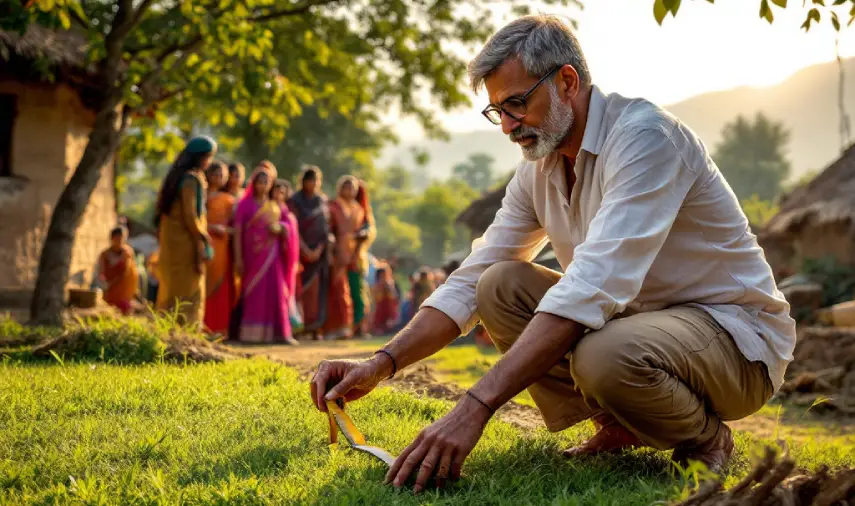
24. Civil Engineers
Civil Engineers design, plan, and oversee the construction of essential infrastructure such as roads, bridges, water supply systems, and sanitation facilities in rural areas.
Qualifications: Bachelor’s degree in Civil Engineering or related fields.
Impact: Their work ensures the development of durable infrastructure that supports economic activities and improves living conditions.
25. Rural Development Officers (RDOs)
Rural Development Officers coordinate and implement government schemes aimed at the holistic development of rural areas, including housing, employment, and skill development programs.
Qualifications: Degree in Rural Development, Public Administration, or Social Work.
Impact: RDOs drive community-focused initiatives, empowering local populations and fostering sustainable growth.
26. Panchayat Engineers
Panchayat Engineers are responsible for small-scale infrastructure projects at the village level, such as building schools, community centers, and drainage systems.
Qualifications: Diploma or degree in Civil Engineering or a related field.
Impact: Their localized approach ensures that infrastructure projects directly address community needs.
27. Water Resource Managers
Water Resource Managers oversee the planning and maintenance of water supply systems, irrigation networks, and conservation projects to ensure the availability of clean water in rural areas.
Qualifications: Degree in Environmental Science, Hydrology, or Civil Engineering.
Impact: By managing water resources effectively, they support agriculture and improve public health.
28. Electrical Engineers
Electrical Engineers work on rural electrification projects, focusing on extending power supply to remote areas, installing renewable energy systems, and maintaining electrical infrastructure.
Qualifications: Bachelor’s degree in Electrical Engineering.
Impact: Their contributions enable access to electricity, improving education, healthcare, and economic opportunities.
29. Town Planners and Urban Development Officers
These professionals develop master plans for rural towns, focusing on sustainable land use, infrastructure integration, and resource allocation.
Qualifications: Degree in Urban Planning, Architecture, or Civil Engineering.
Impact: Their work ensures balanced development that preserves rural character while meeting modern needs.
30. Surveyors and Cartographers
Surveyors and cartographers map land and assess its suitability for infrastructure projects. They provide essential data for road construction, building layouts, and resource management.
Qualifications: Diploma or degree in Surveying, Geomatics, or a related field.
Impact: Accurate mapping and data analysis facilitate effective planning and execution of projects.
31. Project Managers
Project Managers oversee rural development initiatives, ensuring they are completed on time, within budget, and according to quality standards.
Qualifications: Degree in Project Management, Civil Engineering, or Business Administration.
Impact: Efficient project management ensures the success of large-scale infrastructure projects.
32. Architects
Architects design public buildings and community spaces that are functional, sustainable, and culturally appropriate for rural areas.
Qualifications: Degree in Architecture.
Impact: Their designs enhance the aesthetic and utility of rural infrastructure, creating vibrant community spaces.
33. Environmental Engineers
Environmental Engineers address issues related to waste management, pollution control, and sustainable development in rural infrastructure projects.
Qualifications: Degree in Environmental Engineering or Science.
Impact: Their work ensures that infrastructure development is environmentally sustainable.
Administrative and clerical positions
34. Village Development Officer (VDO)
Village Development Officers coordinate development programs at the grassroots level, ensuring proper implementation of rural schemes and policies.
Qualifications: Graduation in any discipline; knowledge of local governance is often required.
Impact: They directly contribute to the development of rural infrastructure, employment, and welfare programs.
35. Gram Panchayat Secretary
Panchayat Secretaries assist in the administration of Gram Panchayats, handling records, budgets, and official correspondence.
Qualifications: High school diploma or graduation, along with knowledge of regional languages.
Impact: They ensure that local governance operates efficiently and transparently, supporting community development.
36. Revenue Assistant/Patwari
Patwaris maintain land records, assist in property registration, and help resolve land disputes.
Qualifications: High school education with training in revenue laws and record-keeping.
Impact: Accurate land records and fair resolutions of disputes contribute to rural stability and development.
37. Clerks and Office Assistants
Clerks manage paperwork, data entry, and general office tasks in rural government offices, such as block development offices (BDOs) or sub-divisional offices.
Qualifications: High school or bachelor’s degree; proficiency in computer applications is often required.
Impact: Their administrative support ensures the efficient processing of applications, permits, and grievances.
38. Accountants
Accountants handle financial records, budgets, and audits for rural government offices and projects.
Qualifications: Bachelor’s degree in Accounting, Finance, or Commerce; proficiency in financial software.
Impact: Their role ensures transparency and accountability in the allocation and use of government funds.
39. Data Entry Operators (DEOs)
DEOs manage digital records, input and retrieve data and maintain online systems for rural governance programs.
Qualifications: High school diploma or equivalent; certification in computer applications is often necessary.
Impact: Digitization of records improves accessibility and speeds up administrative processes.
40. Administrative Officers
Administrative Officers oversee the operations of rural government offices, ensuring compliance with policies and smooth service delivery.
Qualifications: Graduation, with experience or exams qualifying them for administrative roles.
Impact: Their leadership ensures the effectiveness and efficiency of local governance.
41. Postal Workers
Postal workers handle mail delivery, financial services, and communications in rural post offices.
Qualifications: High school education and physical fitness for delivery roles; clerical staff may need additional computer skills.
Impact: They provide essential communication and financial services, linking rural areas to broader networks.
42. Typists and Stenographers
Typists and stenographers prepare official documents, transcribe meetings, and handle correspondence.
Qualifications: High school diploma with proficiency in typing and shorthand; computer skills are essential.
Impact: Their work ensures accurate and timely documentation for government functions.
43. Registrar/Registrar Assistants
Registrars handle the registration of births, deaths, marriages, and other legal documents.
Qualifications: Graduation or relevant experience in administrative roles.
Impact: Maintaining accurate records of civic events helps in planning and delivering public services.
Advantages of Working in Government Jobs in Rural Areas
working in rural areas or village as government employee there is multiple career benefits from which few of them lissted it.
- Job stability and security
- Opportunities for career growth
- Impact on local communities
- Worklife balance
- Cost of living and housing benefits
Challenges of Working in Government Jobs in Rural Areas
- Limited access to amenities and services
- Isolation and lack of social opportunities
- Professional development and networking limitations
- Recruitment and retention issues
How to Find and Apply for Government Jobs in Rural Areas
You can get government job opportunities from various government portals like UPSC and SSC, including prestigious roles such as the Indian Administrative Service (IAS), Indian Police Service, Junior Statistical Officer, Upper Division Clerks, and positions like Inspector of Income Tax. If you are looking in our village for state government positions then apply to state service commissions or need to inquire from Tehsil. Securing a government job in Public Sector Units (PSU) or above-shared posts typically involves a structured recruitment process:
Securing a govt job in rural areas requires careful planning, research, and adherence to the recruitment process. These government job positions in the government sector are typically advertised through official channels, often providing a free job alert to interested candidates, and the application form process is transparent, ensuring equal opportunities for all and good pay. Below is a comprehensive guide on how to find and apply for government jobs in rural areas.
Government Recruitment Agencies
- State Public Service Commissions (PSCs): Conduct recruitment exams for state-level government jobs.
- Union Public Service Commission (UPSC): Manages recruitment for central government jobs.
- Staff Selection Commission (SSC): Handles clerical and administrative job recruitment.
- Rural Development Departments: Offer positions specific to rural areas like village officers or panchayat staff.
- Health and Education Departments: Recruit for roles in schools, hospitals, and community centers.
- Job Portals: Trusted websites like National Career Service or state-specific portals.
Prepare for Competitive Exams
Most government jobs, including those for the Air Force and the Indian Army, require candidates to clear competitive examinations. The exams test general knowledge, technical skills, and aptitude in different ways. All exams are not for graduate people. You can also apply after 12th class. There is a lot of competition for people who apply after 12th. So, you have to prepare for Government Jobs After 12th.
Steps to Prepare:
-
- Understand the Exam Pattern: Check the syllabus and format of the test.
- Study Material: Use official guides, reference books, and online resources.
- Mock Tests: Practice regularly to improve speed and accuracy.
- Coaching Centers: Consider enrolling in coaching programs if needed.
Once you clear the exam then some job post require interview round in which board committee ask question and you have answer it. During you this process the board committee will test your personality and communication skill so that you can handle job profile very well. So, need working on improve communication skills & personality development.
Tips for Thriving in Government Jobs in Rural Areas
- Embracing the local community and culture
- Building strong professional relationships
- Balancing work and Personal Life in a rural setting
- Seeking out professional development opportunities
- Contributing to the growth and development of the rural area
Conclusion
Government jobs in rural India are not merely employment opportunities; they represent a chance to contribute to society and uplift communities, especially when compared to the opportunities available in the private sector, including positions such as group D posts and assistant loco pilot roles within Indian Railways, as well as roles within the Reserve Bank of India. Whether you are passionate about education, health, agriculture, or administration, there are numerous avenues to explore that often come with high salaries and job security. These positions offer not only stability and growth but also the satisfaction of making a tangible difference in people’s lives. As the Indian government continues to invest in rural development, the demand for dedicated professionals in these sectors is expected to grow, making now an excellent time to consider a career in rural governance.
Frequently Asked Questions
What are the eligibility criteria for these jobs?
The eligibility requirements differ based on the particular position posted by the Central Government or the Ministry of Rural Development. Detailed information is available on the respective Ministry’s website or the National Career Service portal.
How does one prepare for government job exams in rural areas?
Preparation strategies often include understanding the syllabus, referring to study materials specific to the exam, and staying updated on current affairs, particularly related to rural development, National Rural Livelihoods Mission, and Rural Employment Guarantee schemes.
Can women find government job opportunities in rural sectors?
Absolutely! The Government of India emphasizes women empowerment through dedicated programs within the Rural Employment Guarantee scheme and National Rural Livelihoods Mission. These initiatives actively encourage women to participate in village development and the workforce.





